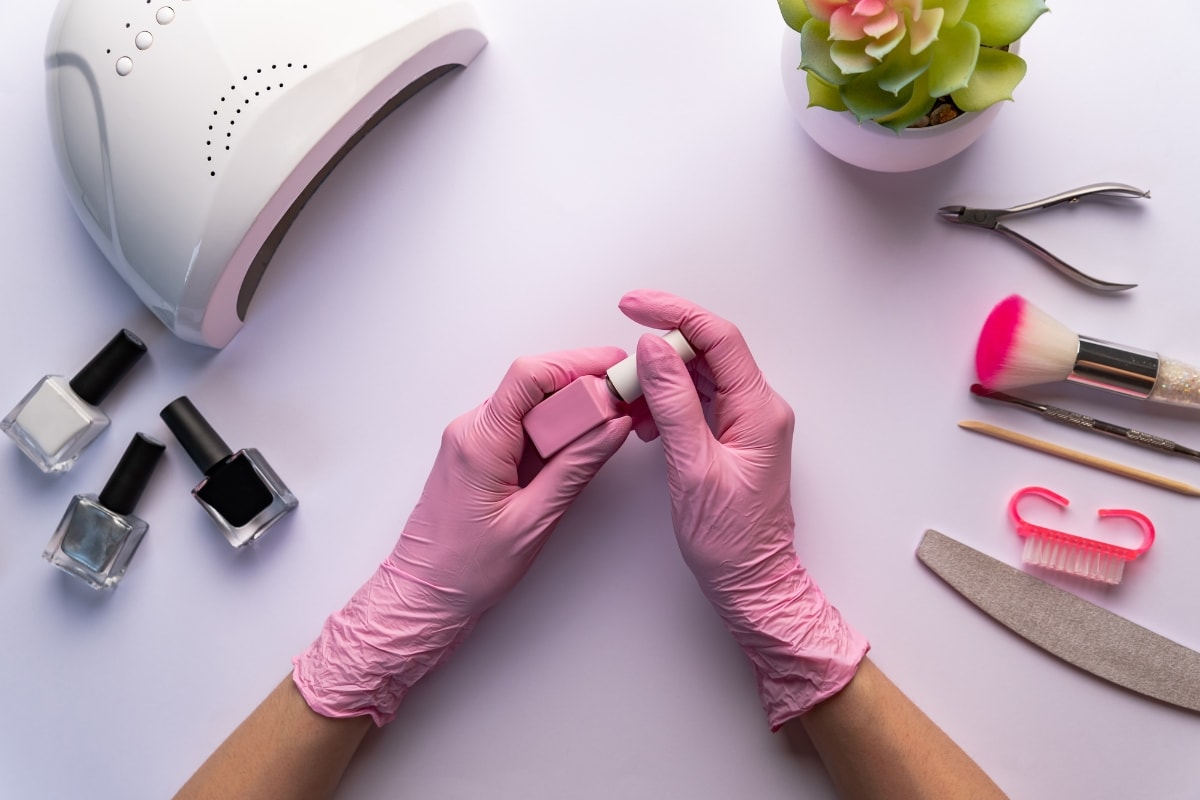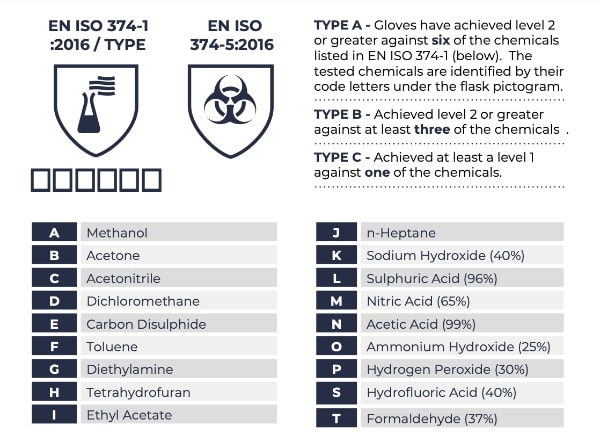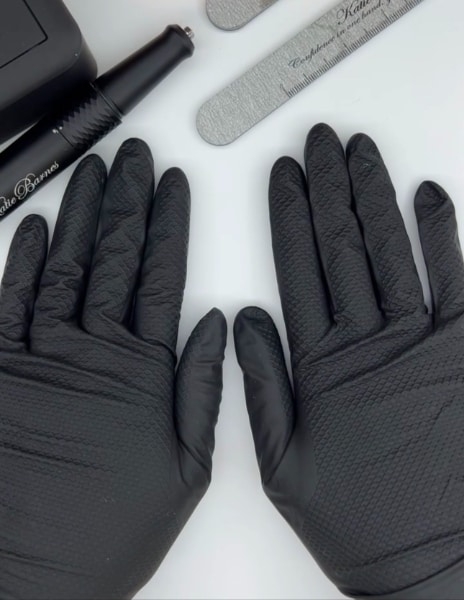
Are your gloves protecting you against nail ingredients?
By Katie Barnes | 18 July 2023 | Expert Advice, Feature, Health & Wellbeing

In a previous blog for Scratch, we explored what gloves are needed for nail technicians and covered thickness and how often these need to be changed. In this blog, we delve deeper into chemical permeability and how to know if your gloves protect you against the chemicals which you use daily.
You’ve calculated the time you have chemical protection and change them to this timescale; however, you may still be experiencing irritation and permeation of nail ingredients. Why does this happen?
Gloves are made for different trades and industries, meaning that different gloves will protect against different chemicals and may well not be protecting you against the nail ingredients you are using.
Chemically protective clothing such as gloves must be able to withstand the permeation of chemicals in order to be considered chemical-resistant. Testing is carried out on a wide range of materials and products to the requirements specified in EN ISO 374-1 (chemical requirements for gloves) to determine which gloves give chemical resistance against which substances.

How do you know whether your gloves protect you against the ingredients you use? Firstly, only ever purchase your PPE and gloves from reputable manufacturers, never third-party online marketplaces such as Amazon and Ebay as you will not have any guarantee on what you are purchasing is genuine, accurate nor have manufacturer support and guidance.
Ensure that your supplier is a well-known safety workwear supplier, PPE supplier or knowledgeable company – this allows you to request certification, reports, and specifications regarding your gloves.

Whilst it is important to request thickness, chemical resistance time and EU Chemical Resistance specifications, you also need to know exactly what substances your gloves have been tested against. A reputable supplier will be able to provide this certification without issue. If there is any uncertainty, avoid this supplier.
You will be able to get the substance ingredient list from your nail product supplier, and then request the chemical permeability certification against these chemicals. This may also be readily available on the supplier’s website. Note that different substances, can have slightly different names, so you can check these here.
As this is a costly process, it is unlikely that the suppliers will have tested every possible substance, but the most likely used in the industry those gloves are supplied, including the most common irritants and allergens.
When sourcing your gloves, here are some other important points to consider.
Love Katie B xx

Read the latest issue









